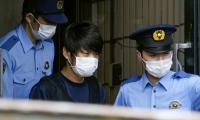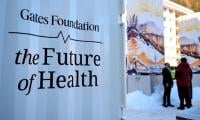Baqar tells local govt dept to purge SBCA, KWSC of corruption
Sindh Caretaker Chief Minister Justice (retd) Maqbool Baqar has directed the provincial local government department to activate its various wings and purge them of corruption, particularly the Sindh Building Control Authority (SBCA) and Karachi Water and Sewerage Corporation (KWSC).
“I am sorry to say that no layout plan of any building is approved without gratification and illegal hydrants have become a big source of easy money as this trend is not acceptable and tolerable,” said the interim CM.
He delivered these remarks while chairing a meeting on the local government department at the Chief Minister House on Thursday.
The corrupt practices at the SBCA had earned a bad name for the government, conceded the caretaker CM. “Every approval in SBCA requires payment of [illegal] money and no layout plan is approved until and unless palms of the officials are greased properly,” he lamented and added that the corruption was the main reason which allowed illegal constructions in the city.
The CM warned the SBCA that it should become an efficient, honest and delivering organisation and work hard to contribute to the quality constructions in the city, otherwise, he would take a strict action that would always be remembered.
Justice (retd) Baqar directed Caretaker Local Government Minister Mubin Jumani to purge the SBCA of corruption. He told the SBCA management that he would pay a surprise visit to their office any time.
Regarding the water corporation, the CM said the hydrants were set up to provide water to the colonies that were established temporarily but in Karachi, such hydrants had become a source of minting money.
Karachi Mayor Barrister Murtaza Wahab told the interim CM that there were seven official hydrants of the KWSC. To this, the CM said there should be a proper system, procedure and rules for their operations.
The mayor said the KWSC with the support of police and the Rangers had started a crackdown on the illegal hydrants. He disclosed that the police had arrested 70 people for running illegal hydrants and impounded 17 water tankers.
The CM directed the local government department to speed up operations against the illegal hydrants and did not allow such illegal trade.
The CM expressed displeasure at overflowing manholes that were damaging roads. He directed the KWSC to ensure proper functioning of their sewerage system.
The managing director of the Sindh Solid Waste Management Board (SSWMB) told the meeting that approximately 11,350 tonnes of solid waste was generated in the city daily.
The SSWMB chief said that 80 per cent of door-to-door waste collection in District South, 70 per cent in District East, 80 per cent in District Malir, 70 per cent in District West, 80 per cent in District Keamari, 60 per cent in District Korangi, and 55 per cent in District Central was being carried out by the SSWMB.
The CM directed the SSWMB to make the city neat and clean. He added that he would personally visit different areas of the city to inspect the state of cleanliness.
Justice (retd) Baqar remarked that the entire cleanliness work, including door-to-door collection, manual and mechanical sweeping, road washing, attending to community bins, and complaint management system had been outsourced to different companies. He directed the SSWMB to get these companies to work efficiently, for which the government was paying them.
The CM also directed the local government department and Karachi Metropolitan Corporation officials to take measures to beautify important roads and roundabouts.
Jumani told the meeting that he was personally holding meetings with local bodies so that an appropriate beautification programme could be launched.
The CM also pointed out that major cities of the province had no master plan, due to which development works were being carried out without a proper direction.
To this, the principal secretary to the CM, Hassan Naqvi, said the planning and development department had prepared master plans for 19 cities, which needed to be implemented.
-
 Prince Harry Receives Praises For Exposing Dark Side Of British Tabloids
Prince Harry Receives Praises For Exposing Dark Side Of British Tabloids -
 Andrew Forces Beatrice, Eugenie To Lose $60 Million Safety Net Saved For Retirement
Andrew Forces Beatrice, Eugenie To Lose $60 Million Safety Net Saved For Retirement -
 Nvidia CEO Jensen Huang To Visit China To Push Re-entry Into AI Chip Market
Nvidia CEO Jensen Huang To Visit China To Push Re-entry Into AI Chip Market -
 U.S. On Verge Of Losing Measles-free Title Due To Outbreak
U.S. On Verge Of Losing Measles-free Title Due To Outbreak -
 Harry Styles Excites Fans As He Announces Release Date Of New Song
Harry Styles Excites Fans As He Announces Release Date Of New Song -
 Japan’s Ex-PM Shinzo Abe’s Killer Is Set To Be Sentenced: How Much Punishment Could He Face?
Japan’s Ex-PM Shinzo Abe’s Killer Is Set To Be Sentenced: How Much Punishment Could He Face? -
 Prince Harry, Meghan Markle’s Return To UK Could Create Royal Family Dilemma
Prince Harry, Meghan Markle’s Return To UK Could Create Royal Family Dilemma -
 Prince Harry Turns Troubled With No Sense Of Home: ‘Isolation Is Getting To Him Mentally’
Prince Harry Turns Troubled With No Sense Of Home: ‘Isolation Is Getting To Him Mentally’ -
 Vitamin D Link To Respiratory Diseases Will Shock You
Vitamin D Link To Respiratory Diseases Will Shock You -
 A$AP Rocky Gives His Take On Children's Budding Personalities
A$AP Rocky Gives His Take On Children's Budding Personalities -
 Elijah Wood On Return To 'Lord Of The Rings' Universe
Elijah Wood On Return To 'Lord Of The Rings' Universe -
 Princess Beatrice, Eugenie Resort To Begging Sarah Ferguson: 'It'll Bring Disaster For The Whole Family'
Princess Beatrice, Eugenie Resort To Begging Sarah Ferguson: 'It'll Bring Disaster For The Whole Family' -
 Jenny Slate Hails Blake Lively Amid Lawsuit Against Justin Baldoni
Jenny Slate Hails Blake Lively Amid Lawsuit Against Justin Baldoni -
 Sophie Wessex Shares 'frustration' From Early Days In Royal Family
Sophie Wessex Shares 'frustration' From Early Days In Royal Family -
 Jason Momoa's Aquaman Unseen Snap Revealed
Jason Momoa's Aquaman Unseen Snap Revealed -
 Prince Harry Taught Only Way King Charles 'will Take Him Seriously'
Prince Harry Taught Only Way King Charles 'will Take Him Seriously'



